- Home
- Douglas Niles
The Messenger it-1 Page 6
The Messenger it-1 Read online
Page 6
Finally one eyelid cracked open. It was daylight, and he lay on deck, though a heavy overcast thankfully muted the full painful glare of the sun. Without moving, he became aware of a gentle shift in orientation, as the boat spun gradually in the arms of an inexorable current.
“The anchor?” He croaked the words aloud, realizing he was adrift. The resulting sense of alarm was enough for him to push himself upward to a sitting position. Each movement provoked overpowering sensations of pain, but at last he could rest his head against the bulkhead and look across the deck, out over the waters of the Than-Thalas River.
He quickly realized that it wasn’t the sky that was overcast, for the gray haze extended down to the water. Instead, something else was obscuring his vision. It was not a cloud, or even a thick fog-rather it was like a heavy layer of gauze draped across the world. Wincing, he rubbed his eyes, breaking dried blood free, finally opening both and blinking.
Everything was masked by a bizarre gray haze.
Magic! He remembered then: the king’s wizards, chanting powerful words, weaving spells with their supple fingers, wrapping a cloak of sorcery around the sailboat as she stood at anchor in Silvanost Harbor. Kerrick had lain on the deck, gasping. Somewhere in the distance Waykand Isletter was laughing, taunting, jeering at the young sailor while the enchanters worked their arts.
Just before that he had been heaved into the waters of the harbor by guards of House Protector, a group of rough-handed fellows who had hauled him down from the palace. They chose to douse him close to the fishing sheds, in water that was foully polluted. Somehow he had bobbed up amidst fish guts and scales and slime, his broken rib hurting with each flailing movement. Kerrick had no memories of climbing aboard his boat, nor did he recall who had cut the anchor. A glance toward the bow showed him that the iron weight had been hoisted aboard. Perhaps he had done so himself in a daze.
Peering toward the riverbank, he could barely make out a horizon of lofty towers, crystalline bridges, and verdant, rolling hills crowned with marbled mansions. He knew there were brilliant flowered gardens cascading down those hillsides, though the magical cloak around his boat seemed to sap the view of every hint of vibrant color. Somehow Cutter had drifted out of the harbor, and the current was carrying him away from the island of Silvanost, a disabled passenger on the river’s eternal course toward the sea.
Grimly, gasping in pain as tears stung his eyes, the elf forced himself to his knees and finally, with his hands clutching the cabin for support, onto his feet. Already he was several miles below the city, moving into water surging with implacable force, propelled vigorously as the two branches of the river reunited below the island city. The Than-Thalas was nearly a mile wide here, and he seemed to be roughly near the middle of the expanse. With each pain-wracked breath, the city that he loved was falling farther and farther behind.
“No!”
He all but screamed the word. They wanted him banished, exiled from their lives and their land, but maybe he could fight them! There were many places he could come ashore, countless small villages in the great forest where no one would know him, where he would be able to recuperate among his own kind. Somehow, someday, he would figure out a way to return to the city-but at least, until then, he would be close by. Lunging into the stern, he grabbed the tiller in his hands, and tried to shift the steering lever. But the gods-cursed thing was stuck-he couldn’t get it to budge.
That exertion proved costly, as his guts suddenly heaved. He leaned his face over the side, retching into the blue-green water barely a foot below his face. With each convulsion the broken rib jabbed at him, until Kerrick fell sobbing and exhausted and flat on his back. All he could see now was that strangely hazy sky, with the tall mast poking like a naked tree trunk straight into the air.
The sail! Again he forced himself to his feet, for the first time noting that there was a significant breeze pushing up from the south. If he could raise some canvas he could capture that wind, use it to slow or divert his course. Yet once more the agony seized him, twisted his insides, rendering him all but immobile.
Doubled over in pain, he thought about the weight of the sail, the lines he would need to hold, and he realized the effort was beyond his strength.
Stumbling toward the cabin, he pulled open the hatch and plunged into the small compartment, staying low as he moved past the cramped galley. His eyes adjusted to the darkness, as, again exhausted by the effort, he slumped onto a bench. It took all of his effort just to hold his eyes open against the pain thudding into his skull, rippling through his body.
His bunk occupied the forward quarter of the compartment. To his left was a table holding his charts and documents, but which was just as likely to be used as an eating place. He craved a steaming pot of his precious Istarian tea, but the stove was cold and he didn’t have the energy to start a fire.
Kerrick’s sword, in its light leather scabbard, hung on a rack above the table, next to his longbow and several quivers of arrows. On the right was the sea chest, his bins of coal, charcoal, and firewood, and several small cupboards containing all of his worldly possessions.
At least, all of those possession that he hadn’t left behind in his palace apartment. He snorted, thinking of the favorite things still ashore, of a particular red silk cape, doeskin boots, chains of silver locked in a box of cedar, feather caps and embroidered tunics. With regret he thought of the precious coins he had saved during his decades in the city: three gold pieces in a little pouch, hidden under a floorboard in his house-gone to him, now.
He also remembered the small collection of ladies’ gloves under his bed. All right-handed gloves, dainty and perfumed and freely bestowed upon him by his lovers. Gloryian’s glove was the prize of his collection, but when he thought about it now the smell of her perfume blurred almost indiscriminately with the fragrances worn by all of his other mistresses.
Oh, he had been quite the rake of Silvanost, at least for a while. He winced as he remembered that life, suddenly and forcibly confronting the fact that he might never be going back there.
Once more he shivered, and he realized that he was still wearing the clothes he had donned for his tryst with Gloryian Dirardar. They clung to him, scratching and chafing, smelling vaguely of fish entrails. Wrinkling his nose, he kicked off his moccasins, pulled off the silk hose, shrugged out of his woolen shirt and vest. Each movement hurt him, but he took almost a pleasure in the pain, in the shedding of these garments that were like a skin on an earlier body.
He opened his sea chest and laughed bitterly, spotting a red silk cap with its black and white eagle feather sitting carefully atop his practical clothes. He recalled that he had worn that cap recently, when he had brought Glory out to the boat. Afterward, her servant had returned her to shore in the dinghy while Kerrick had napped. When he was ready to go ashore himself, he had swum. Not wanting to damage the plumed hat, he had left it here.
As he dressed, Kerrick relished the comfort of sturdy, dry seafaring garb. He slipped into brown woolen trousers and supple boots, then encased his upper body with a loose cotton shirt. He eschewed the leather gloves and the woolen overshirt-such clothes were essential when he sailed the southern sea, but in the Silvanesti summer they would only be stifling and heavy.
At the bottom of his sea chest was a small strongbox, unlocked, with the key jutting from the latch. He popped it open and regarded the two objects within. One was the ring of gold left to him by his father, the only other legacy, besides Cutter, of Dimorian Fallabrine’s life. Kerrick touched the wreath of oak leaves emblazoned so meticulously into the curved surface. He had never donned the ring-his father’s warning still resonated in his memory-but he treasured it and saved it, and wondered. Someday, if Dimorian had spoken truly, that ring might save his life.
The other thing in the box was a small ivory tube, with a scroll of parchment inside-a scroll with writing he had committed to memory. Absentmindedly, he took the scroll tube and slipped it into his pocket. Still aching,
he decided to brew some tea. An hour later, after nursing two mugs of the pungent, invigorating draught, he wondered if it might be possible to raise the sail.
He still felt pain, but it was manageable, no longer crippling. Once more he stepped through the hatchway onto the deck, shutting the portal tightly behind him.
He felt himself moving easily, was able to forget the fact that he was injured and bruised. With barely a grimace he lifted the lid of the sail locker and was rewarded with a sharp twinge from his broken rib. More carefully he reached inside and hooked the line to the top of the mainsail.
With practiced gestures he began to pull on the line. He enjoyed the sight of the blue canvas rising slowly from the locker, climbing up the tall mast. He paused to attach the base of the sail to the boom, then continued hoisting away. The sail snapped and fluttered in the breeze, and he began to feel some hope, some confidence in his own experience as a sailor, and in the remembered seaworthiness of this fast, dependable boat.
For now he let the boom trail over the water and the canvas flap loosely, and soon the sail was fully aloft. With a firm gesture, he pulled on the steering line, bringing the sail against the wind, waiting for the push that would show him the boat was firmly under his control.
Instead, the breeze came hard and Cutter, without veering from her down-river course, heeled sharply, lurching and almost pitching the elven sailor into the water. Kerrick let go of the rope and threw himself down, hands grasping the rail as the boat quickly righted herself, its sail flapping loosely off to the side. Gasping from the sudden pain, he looked around, and again that gray haze filled his eyes.
The spell! He understood it fully, then: He was trapped by the king’s will. His knuckles whitened on the gunwale and he stared wildly around him at the gray murk, comprehending beyond all doubt. The king’s sorcerers had surrounded the boat with a spell that kept him on a southward course, no matter how he steered or the wind blew.
With a glance over the stern, Kerrick saw that Silvanost had already vanished behind him around a bend. He felt heartsick-he had missed a last look at the most beautiful place in all Krynn. Anger swept over him, the sense of a great injustice that had been done to him and frustration in his inability to strike back at his tormentors. From somewhere in the depths of his memory Waykand’s taunting laugh echoed.
Then came despair. Would life be worth living if he had to live it away from Silvanesti? He gazed longingly at the verdant bluffs on the distant shore. A gleam of color, washed pale by the haze, arced over a deep, tributary canyon. This was the Rainbow Gorge, he knew, the shadowy vale where wizards maintained a permanent and brilliant pattern of rainbows, bright even in darkest night. When he sailed northward from the sea, he had always used the Rainbow Gorge as a sign that he was drawing near to home.
Now it seemed only a mocking reminder that he would never feast his eyes upon their pure beauty again. Slumping in the hull, he at last gave way to a hopelessness so deep and wounding that he could not even weep. He only sat numbly, watching as the gorge and its precious rainbows slowly receded in the distance.
A froth of water caught his eye, and he glimpsed a great trading galley churning northward through the river channel. Banners of silk, in red and blue and green, the colors muted by the magic haze, trailed from every mast and post. Double banks of great oars propelled the big ship upstream against the current. Kerrick drifted close enough that he could make out the faces of the elven captain and his mates, saw them leaning casually at the rail. It had been a successful voyage, to judge from the many pennants, and Kerrick wondered fleetingly how many times his father had made just such a return to this great land, had brought back cargoes of dwarven stone or Tarsian horses or-after the Istarian War-precious gold to make rich the coffers of the elven king.
As the great ship cruised on past and he studied the officers and their laboring crew, he came to a realization that only deepened his unhappiness. For these elves were looking in his direction, admiring the shoreline, but they made no acknowledgement of his presence, even steering dangerously close to him.
“They can’t even see me!” The wizards’ magic not only locked him onto a course of exile but shrouded his very existence from those he encountered on the way down the river and out of the elven nation.
As he crumpled against the transom, he was reminded of the scroll tube he had placed in his pocket. Kerrick took it out, pulled the cork from the end of the container, and slid the sheet of silken paper into his hands.
Even now, in the depths of his misery, the words brought back a measure of the pride he had felt when his liege bestowed it upon him:
These are the words of the King, for the eyes of all elvenkind:
Know that a young sailor of Silvanost has made the arduous journey from the Than-Thalas estuary to Tarsis, and then returned, crewing his sailing boat, Cutter, entirely by himself.
This solitary voyage ranks high in the annals of elven seamanship, and Kerrick Fallabrine is to be known to all of Silvanesti as a Friend of the King.
Speaker of Stars
Nethas Caladon of
House Silvanos,
Fifth King of Silvanesti
A gust of wind carried drops of water across the gunwale, splashing onto the page and causing the ink to smear. Strangely, though this scroll had been one of his treasured possessions, Kerrick wasn’t concerned. His mind wandered, drifting away from the boat, across the water with the wind, free of this bobbing vessel and its magical geas. He remembered his first voyage, not in Cutter, but in his father’s fabulous galley, Silvanos Oak, a vessel that would have dwarfed the splendid ship that had just passed him.
Of course, Dimorian Fallabrine was the king’s admiral and a victor of many noteworthy sea battles. He had made himself a name and a fortune during the Istarian War, when navies of that human empire had attempted to block the elves from trading with the many human nations flourishing to either side of Silvanesti. The Kingpriest had sent his ships by the score, great, deep-drafted galleons that sailed with impunity back and forth across the mouth of the Than-Thalas, blockading the ships of elves and humans alike, keeping all from entering or departing from the elven kingdom.
The roots of the conflict were ancient but could be boiled down to one word: gold. That precious metal, ever in short supply among the civilized nations of the world, was the historical symbol of Istarian might. The Kingpriest claimed that every ingot, every flake of the precious stuff belonged, by gods-given right, to him. However, elves coveted gold, too-not only for its beauty, but because it was necessary for the working of great magic spells, such as the sustained beauty represented by the Rainbow Gorge.
Many elven noblemen, dashing sailors who fancied themselves epic heroes, dared to try and slip past that blockade, but their ships were always caught, the crews put to the sword, nobles held hostage against exorbitant ransom. It was Dimorian Fallabrine, in a small trading galley, the Southcoast Elm, who successfully challenged the Istarian fleet. The tale of his exploits would later be made into a court poem and national song, and the recounting of his accomplishment never failed to fill Kerrick with pride.
With his ship crewed by an unusual mix of races, Dimorian faced two Istarian galleons in a long battle. Fire arrows filled the sky with smoke, and the ships rammed and counterrammed all day, breaking timbers, masts, and oars. The Kingpriest’s cleric shouted spells of protection and blessing until an elven wizard killed that priest with a crackling bolt of magical lightning. Eventually, one of the Istarian ships was sunk in a tangle of rigging, wreckage, and drowning men. Another ship was trapped against the shoals and captured with her entire crew. When Southcoast Elm towed the prize upriver to Silvanost, Dimorian Fallabrine was accorded a welcome reserved for the greatest heroes.
Kerrick’s father was awarded an admiral’s commission by King Nethas, together with a purse of gold allowing him to build the mightiest vessel afloat. The result was Silvanos Oak, a ship propelled by nearly two hundred oars, with a hull enchanted again
st damage and a ram of deadly steel. Dimorian next sailed down river with a force of a dozen galleys, and Silvanos Oak as his flagship. He led the final campaign against the blockade, a campaign so constant, so costly in terms of ships and lives lost, that finally the prideful Kingpriest was forced to acknowledge the failure of his plan.
The resulting treaty allowed Silvanesti free access to such gold as the elves could obtain by trade and mining, and involved settlement of a significant amount of gold paid directly from Istarian coffers into those of King Nethas. For a time there were rumors that Dimorian would be accorded rank as a minor noble, but in the end the monarch instead rewarded the bold sailor with a payment of riches and a vow that all of his offspring would be entitled to training in the royal court of Silvanost.
Kerrick was born shortly after the war ended, and by that time his father had established a great manor on Silvanost’s exclusive Harbor Hill. His wealth granted the family privileged status in the city, though he was never fully accepted by the nobles of the Elder Houses. Still, Dimorian was able to provide for his son a comfortable childhood, with nurses and nannies and plenty to eat.
The young elf’s earliest memories were of the water. He used to gaze southward from his father’s manor tower, eyeing the broad river, dreaming of the endless ocean beyond the elven realm. How many hours had he wasted up there in the tower? Happily he awaited the Silvanos Oak, each time the sleek galley returned from some profitable adventure. Upon each homecoming Dimorian produced fabulous gifts-dyes of unique hues, wines, fruits, and grains of exotic origins, teas from as far away as Istar, and, once, an ornately modeled sword of tin that had been hammered out by a Tarsian craftsman.
Most mysterious of all was the tiny box that Dimorian showed to his son, when Kerrick was still a lad of twenty-five. It came with a whispered promise of magical powers. It was a rare treasure obtained in trade with a mysterious wizard.

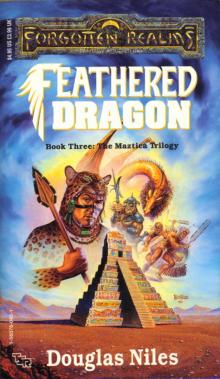 Feathered Dragon mt-3
Feathered Dragon mt-3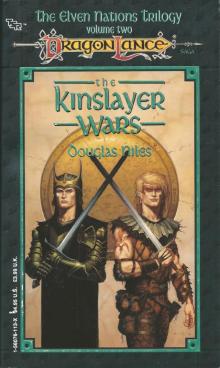 The Kinslayer Wars
The Kinslayer Wars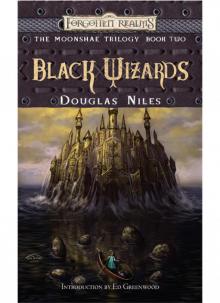 Black Wizards
Black Wizards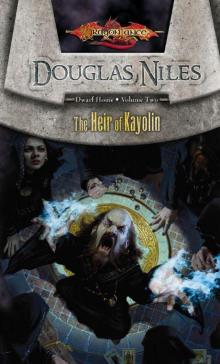 The Heir of Kayolin dh-2
The Heir of Kayolin dh-2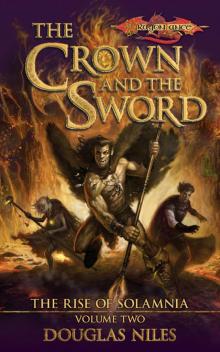 The Crown and the Sword tros-2
The Crown and the Sword tros-2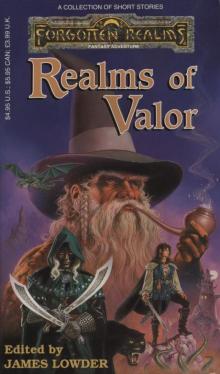 Realms of Valor a-1
Realms of Valor a-1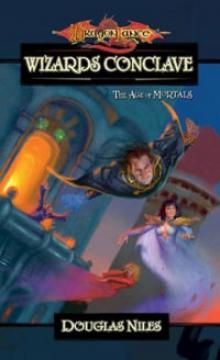 Wizards Conclave aom-5
Wizards Conclave aom-5 Fox On The Rhine
Fox On The Rhine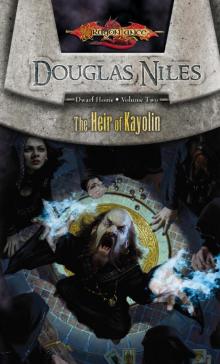 The Heir of Kayolin
The Heir of Kayolin Fox at the Front (Fox on the Rhine)
Fox at the Front (Fox on the Rhine)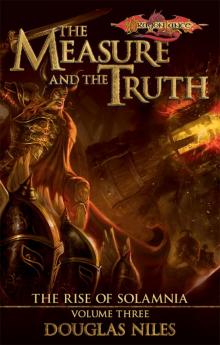 Measure and the Truth tros-3
Measure and the Truth tros-3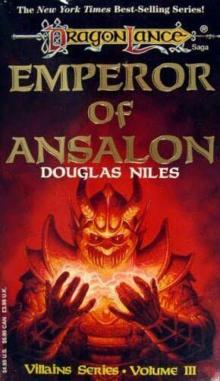 Emperor of Ansalon (d-3)
Emperor of Ansalon (d-3)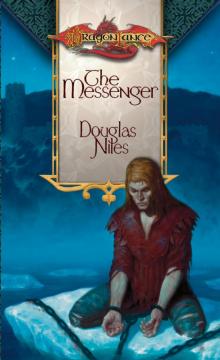 The Messenger it-1
The Messenger it-1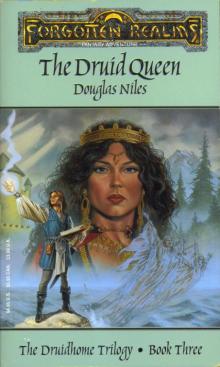 The Druid Queen tdt-3
The Druid Queen tdt-3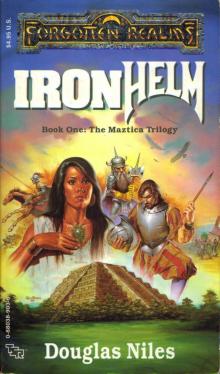 Ironhelm mt-1
Ironhelm mt-1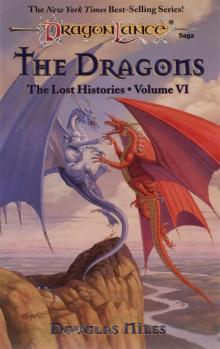 The Dragons lh-6
The Dragons lh-6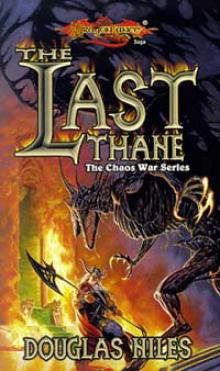 The Last Thane cw-1
The Last Thane cw-1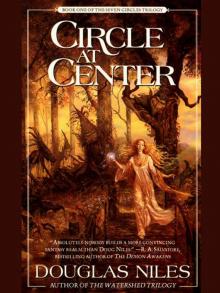 Circle at center sc-1
Circle at center sc-1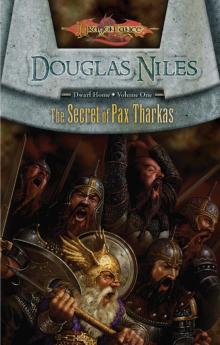 Secret of Pax Tharkas dh-1
Secret of Pax Tharkas dh-1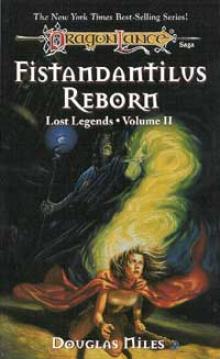 Fistanadantilus Reborn ll-2
Fistanadantilus Reborn ll-2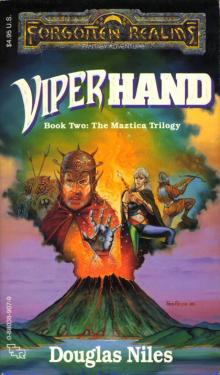 Viperhand mt-2
Viperhand mt-2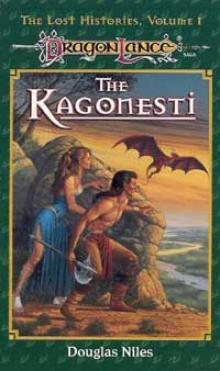 Kagonesti lh-1
Kagonesti lh-1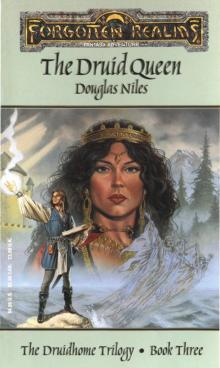 The Druid Queen
The Druid Queen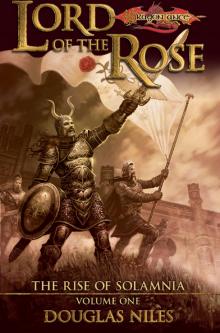 Lord of the Rose tros-1
Lord of the Rose tros-1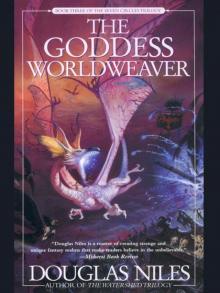 Goddess Worldweaver sc-3
Goddess Worldweaver sc-3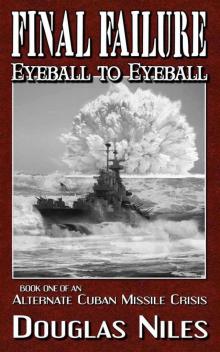 Eyeball to Eyeball (Final Failure)
Eyeball to Eyeball (Final Failure)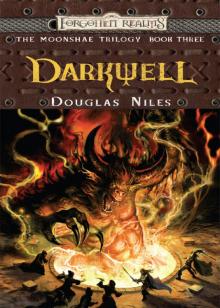 Darkwell
Darkwell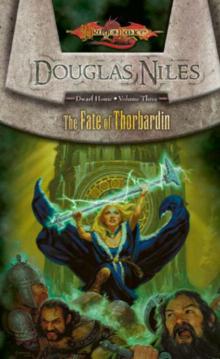 Fate of Thorbardin dh-3
Fate of Thorbardin dh-3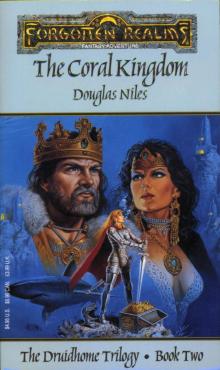 The Coral Kingdom tdt-2
The Coral Kingdom tdt-2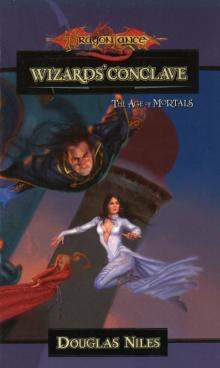 Wizard's Conclave
Wizard's Conclave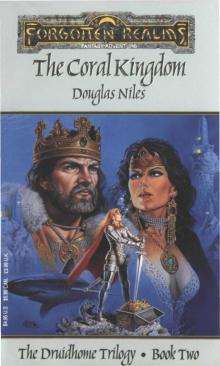 The Coral Kingdom
The Coral Kingdom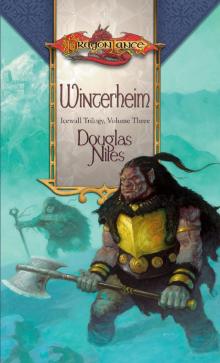 Winterheim it-3
Winterheim it-3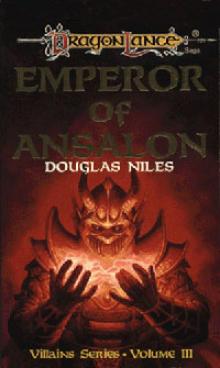 Emperor of Ansalon v-3
Emperor of Ansalon v-3 MacArthur's War: A Novel of the Invasion of Japan
MacArthur's War: A Novel of the Invasion of Japan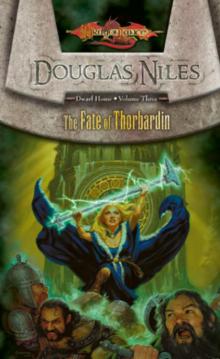 The Fate of Thorbardin
The Fate of Thorbardin The Rod of Seven Parts
The Rod of Seven Parts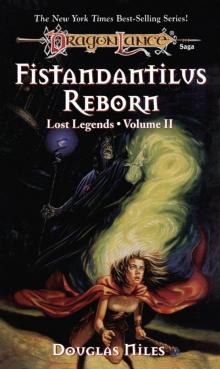 Fistandantilus Reborn
Fistandantilus Reborn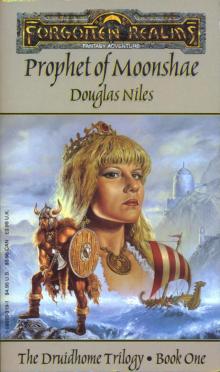 Prophet of Moonshae tdt-1
Prophet of Moonshae tdt-1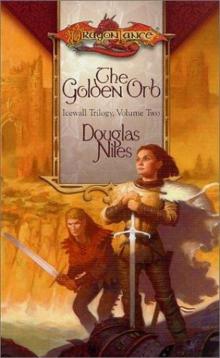 The Golden Orb i-2
The Golden Orb i-2